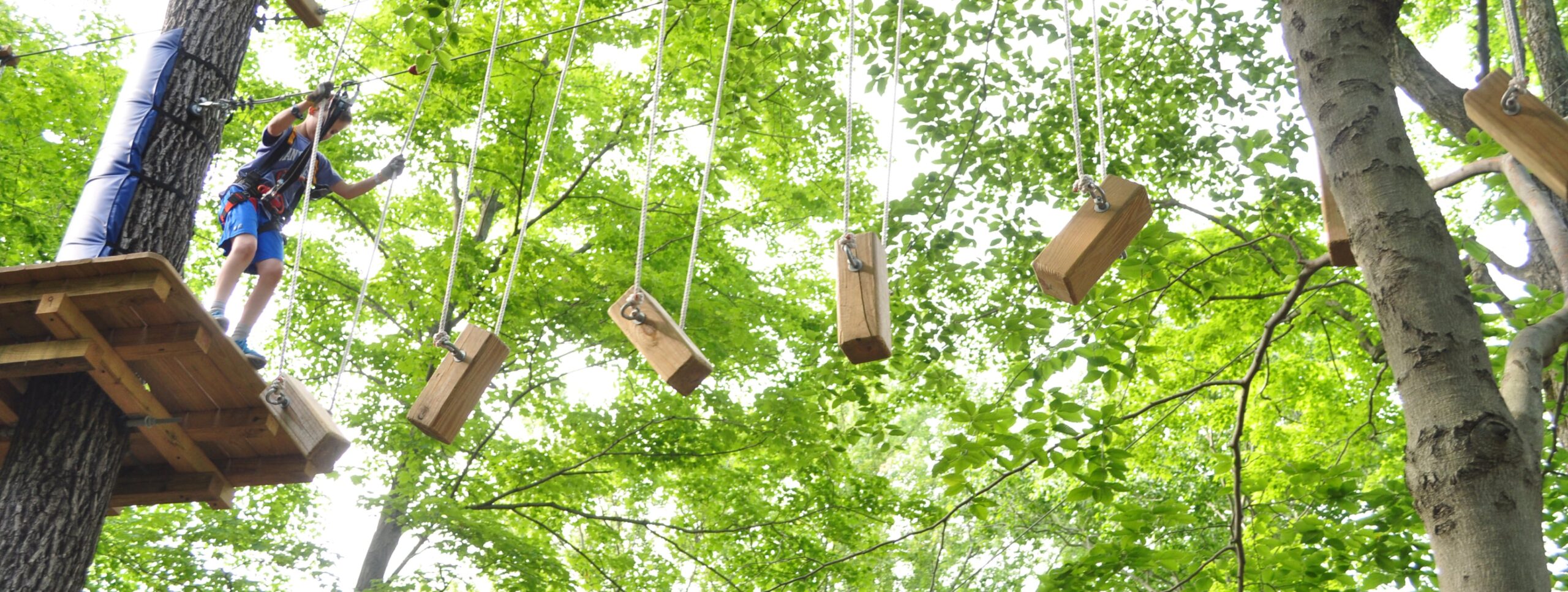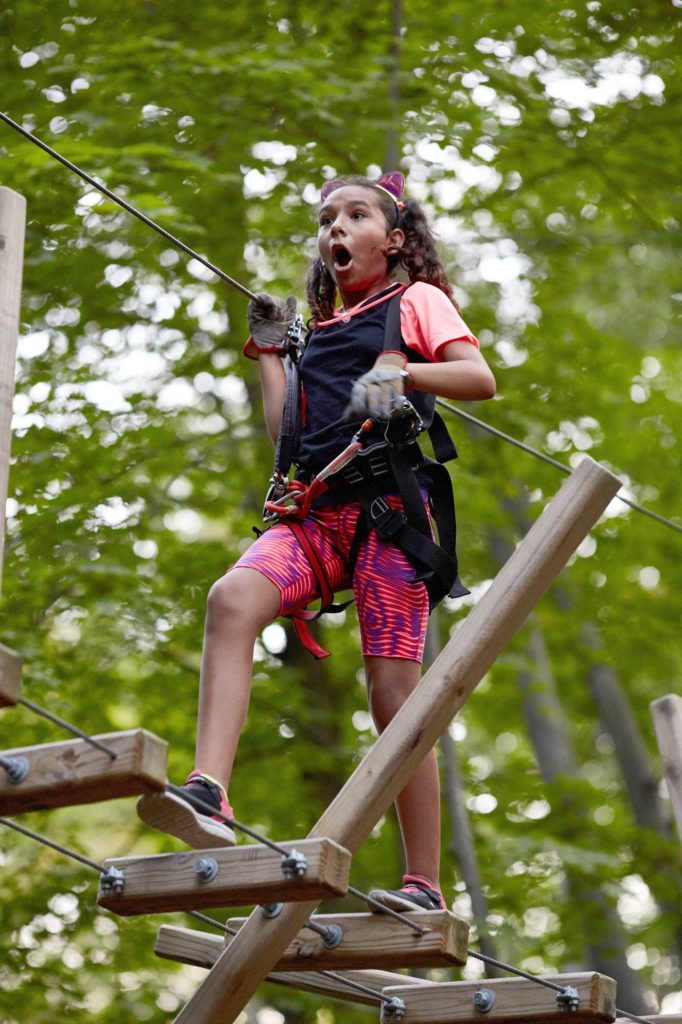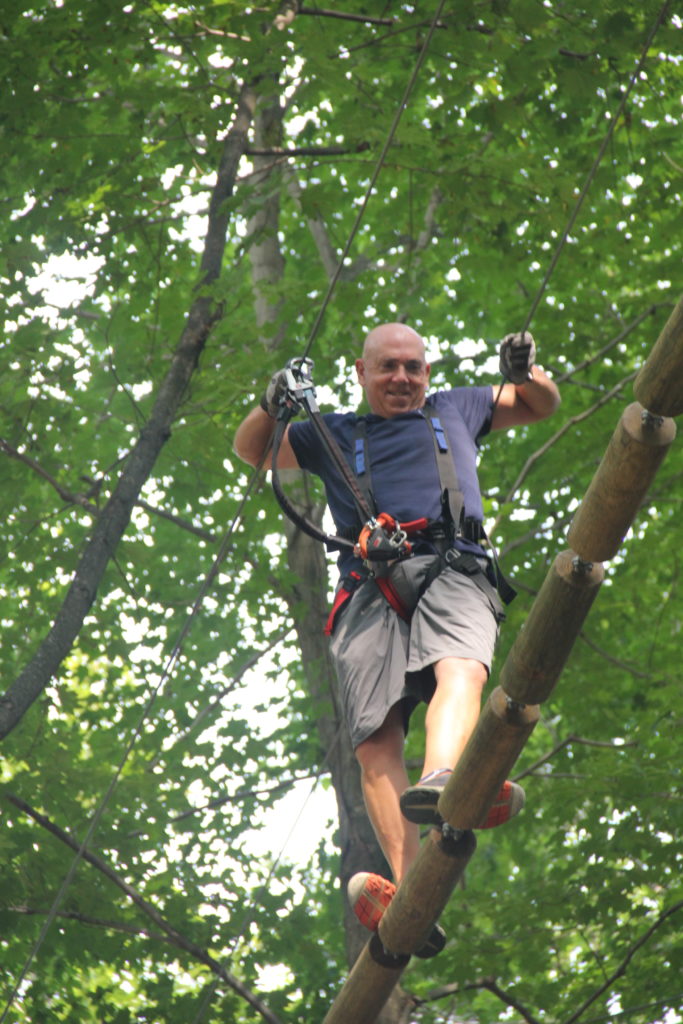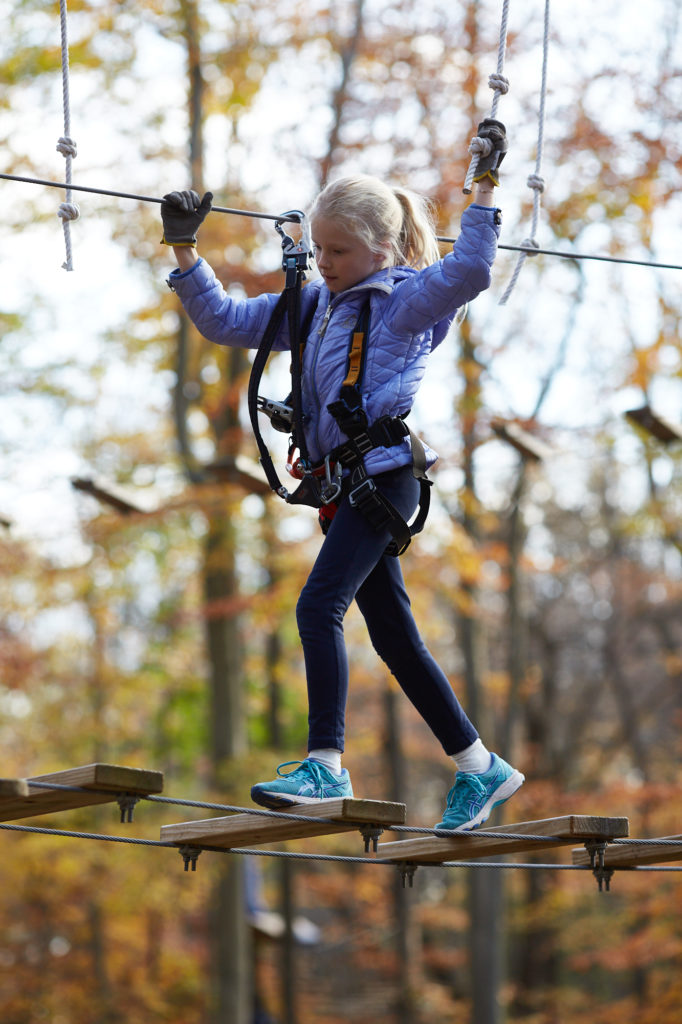Here at Boundless Adventures, all CASEL Core SEL Competencies are being addressed. Sometimes learning can really be FUN FUN FUN!!!
Self-Awareness
Being self-aware is such an important trait for students, teachers and adults alike. It’s why we ensure it’s at the core of everything we do!
A. Identifying emotions
1. Guests are encouraged to continuously monitor how they are feeling and how it changes. Some climbers may arrive feeling nervous, confident, excited, anxious, etc. Once they begin climbing and throughout the experience their emotions evolve.
2. We provide a trip planner that should be utilized both before and after the trip to reflect on the range of emotions felt before, during and after the outing.
B. Accurate self-perception
1. Climbers must evaluate which level course they would like to try- Beginner, Moderate, Advanced, or Expert. If they do not portray an accurate self-perception, they may find themselves in over their head and wishing they were on a less challenging course or that they underestimated themselves and they should have chosen a more challenging course.
C. Recognizing strengths
1. Climbers will start to realize which types of obstacles they excel at. Some climbers enjoy the zip lines while others like the challenging obstacles. Perhaps obstacles, where balance is highlighted more than physical strength, is easier for some and vice versa.
2. Individuals realize that they have more than just physical strengths. Leadership qualities emerge and problem-solving tactics are taking place.
D. Self-confidence
1. Confidence is gained with every obstacle that is successfully completed. As climbers progress through the courses and meet their goals, they start to trust their abilities and judgment. Their sense of doubt in themselves significantly diminishes.
E. Self-efficacy
1. Guests practice the self- efficacy theory of motivation through experience, vicarious experience, social persuasion, and positive physiological feedback.
Self-Management
A. Impulse control
1. Boundless Adventures has rules in place for safety purposes and to preserve the environment. When students are excited, they must control their impulse to run to the starting platform, have more than one person on an element at a time, and to leave the predetermined nature trail to create a shortcut to their destination.
B. Stress management
1. Stress management techniques are practiced on the course including positive attitudes, exercise, social support, deep breathing, mindfulness, and nature stress relief.
C. Self-motivation
1. Guests are welcome to ask for assistance off a course at any time, but the majority of the climbers would rather practice self-motivation to push through a challenging moment. Climbers are often overheard talking themselves up or asking staff to watch them but not help because they want to accomplish it themselves.
2. With the Bornack SSB clips employed for safety, we are able to provide a setting that fosters self-reliance.
D. Goal setting
1. Guests are encouraged to set a goal of which courses they would like to complete. With 4 levels of difficulty, there are many opportunities for goal setting. As the experience progresses, they reflect on how their goals are being met and if they should adjust them.
Social Awareness
A. Empathy
1. Boundless Adventures offers a unique experience which allows guests to have the ability to understand and share what the other climbers are feeling. Everyone has the same feelings of excitement, nervousness, exhaustion, and thrill.
2. Our activity provides a uniquely level playing field, breaking down the social norms that typically exist in groups.
B. Respect for others
1. Boundless Adventures is a positive environment for people to grow. While at the park everyone will be mindful of their words and actions to promote respect for their peers, staff, and the environment.
2. We foster a “challenge by choice” philosophy whereby everyone’s role in the day is respected, and there is no tolerance for intimidation or group pressure.
Relationship Skills
A. Communication
1. Climbers communicate with staff and their peers while they are in the trees. They describe challenges they are facing, ask for advice about specific elements, and alert a staff member if they would like to get down from a course.
2. When teachers participate, we find that not only does peer communication improve, but the teacher-student relationship can be strengthened.
3. We can create climbing teams to foster better communication between certain members of the group if this is applicable.
4. **Depending on the group’s requirements, we can offer icebreakers at the beginning of the day. This is particularly useful for groups that either have dysfunctional cliques or involve subgroups coming together.
B. Teamwork
1. Independent climbers are working together to complete the courses. Word of encouragement, advice on how to complete an obstacle, and what to expect ahead are exchanged.
2. Aspects of teamwork practiced on the course include motivation, individual qualities, developing relationships, healthy competition, and problem-solving.
3. **Depending on the group’s requirements, we can offer activities on the ground that fosters teamwork. These activities can be active or can have a problem-solving component to it.
Responsible Decision-Making
A. Identifying problems
1. Each element offers a different obstacle to solve.
B. Analyzing Situations
1. Each course and element offer an opportunity to examine the circumstances, identify perceived risks, and identify any relevant information they may need to complete the task.
C. Solving Problems
1. Climbers employ a variety of problem-solving techniques in the park such as brainstorming, lateral thinking, means-end analysis, reduction, root-cause analysis, and trial and error.
D. Evaluating
1. Guests assess each course prior to climbing it. Ideas about how many zip lines, challenging obstacles, or moving elements are made. Guests then relate that information to how they are feeling emotionally and physically to see if it is a good fit for their next challenge.
E. Reflection
1. At the end of the experience the group is encouraged to gather for a moment to debrief. This is the most important part of team building because it is when the value of the experience is realized. During this process, the group will share ideas, opinions, what worked, what didn’t, what they would have done differently, and how it can be applied in our everyday lives. Each of the CASEL core SEL competencies should be touched on during this time. This is essential for personal and team growth.
2. **We can facilitate a discussion about the day with a debriefing.
** For an additional $10/guest, we can add 1 hour of structured facilitation. The “**” items are typically part of that hour, but we tailor it to the group dynamics and what the group goals are.







